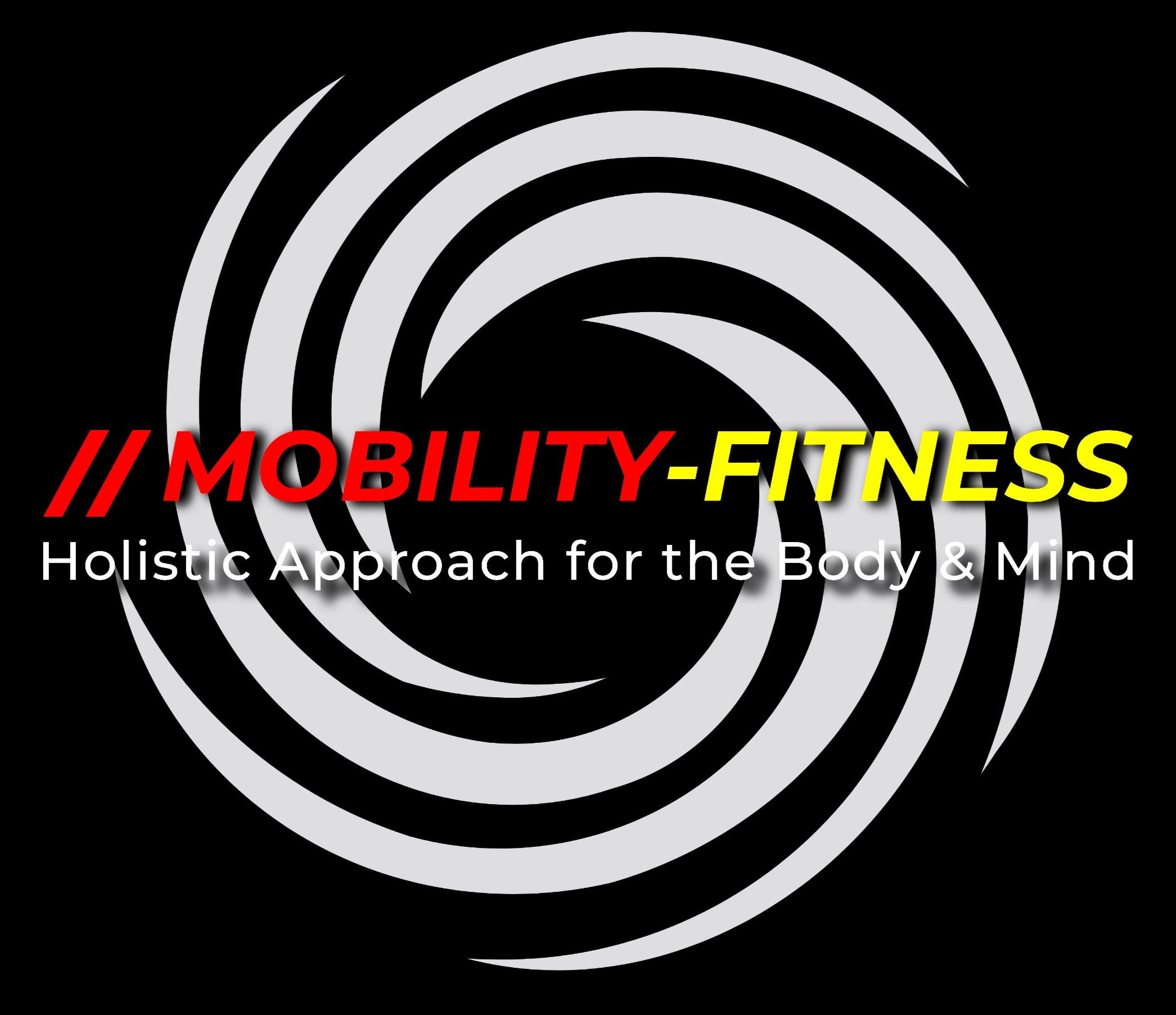When You Eat is More Important Than What You Eat
- Mobility-Fitness.com

- Aug 21
- 5 min read
Most of us have been taught to focus on what we eat: low-carb vs. high-carb, keto vs. plant-based, clean vs. processed. But an often-overlooked truth is that when you eat can be just as important—if not more so—than the type of food on your plate.
Your body runs on circadian rhythms, the natural 24-hour cycles that influence everything from sleep to digestion to hormone release. Food isn’t just fuel—it’s a powerful time cue for your internal clocks. The timing of your meals can either synchronize your biology or throw it completely off balance [1–3].

Food as a Circadian Signal
Every organ in your body—your gut, liver, pancreas, and even your fat cells—has its own circadian rhythm. These internal “clocks” are constantly looking for signals from the outside world. Light is the strongest signal for your brain’s master clock, but food is the strongest signal for your peripheral clocks (like those in your gut and liver) [2,4].
When you eat at consistent times, you reinforce alignment across your system. But when you snack late at night or eat irregularly, you confuse your clocks. This misalignment can impair digestion, slow metabolism, and disrupt sleep [3,5].

What Happens When You Eat Out of Alignment
Late-night eating is a prime example of circadian disruption. Your digestive system slows down in the evening, meaning food lingers longer in your stomach and blood sugar spikes become exaggerated. Over time, eating out of sync can contribute to weight gain, insulin resistance, and increased inflammation [6,7].
🧬Essentially, your body wants to rest and repair in the evening—not process a heavy meal.

Hormone Optimization
Meal timing plays a direct role in hormone regulation. For example:
Insulin sensitivity is highest in the morning and declines as the day goes on [8].
Cortisol naturally spikes in the morning, priming you for energy and focus. Eating in sync with this rhythm supports stable energy [9].
Melatonin, the sleep hormone, rises in the evening. When melatonin is high, insulin sensitivity is low—making late-night meals especially disruptive [10].
💫By eating with your hormonal rhythms, you can improve energy, mood, sleep, and fat loss.

Light, Darkness, and Meal Timing
Just as light tells your brain when it’s day or night, food tells your organs when it’s “feeding time.” Eating late at night or under artificial light can send conflicting signals: light indicates “day,” while your circadian clock recognizes “night.” This misalignment can disrupt metabolic rhythms, impairing glucose regulation and metabolic efficiency. Aligning meals with natural daylight hours supports healthier metabolism, more stable energy, and overall circadian harmony. [11]
Macronutrient Timing
Not all calories are equal at all times of day. Aligning your macronutrients with your circadian rhythm helps your body use them more efficiently:
Carbs: best earlier in the day, when insulin sensitivity is highest [8,12].
Protein: spread evenly throughout the day to support muscle repair [13].
Fats: moderate intake throughout, but avoid heavy, fatty meals late at night as they slow digestion [14].

Fuelling Workouts
When you train also matters. Eating before a workout can improve performance, and timing carbs and protein afterward enhances recovery. Adjusting meal size and composition to the time of day may help you feel energized and support recovery [15,16].

Feasting and Fasting
Your body thrives on periods of both eating and not eating. A consistent overnight fast of 12–16 hours gives your gut time to repair and your body a chance to switch into fat-burning mode. On the flip side, feasting during your active hours reinforces circadian alignment and prevents metabolic sluggishness [17,18].
Best and Worst Times to Eat
Best: Morning to early afternoon, when your body is aligned with daylight and insulin sensitivity is highest [8,12,19].
Worst: Late evening and night, as your body prepares for rest and melatonin rises, making it harder to process food efficiently [7,10].
Why This Matters
The timing of your meals could potentially be even more important than the type of food consumed. Eating in sync with your body’s circadian rhythm supports digestion, hormones, sleep, and metabolism. Eating out of sync does the opposite [1–3].
Both the Circadian Reset Protocol and the Fat Loss Diet Protocol are designed with this principle in mind. They guide you through the optimal times to eat, so your body can function as it was designed to—energized, lean, and resilient.
✅Practical guideline: Consume the majority of your calories during daylight hours and allow for a longer overnight fast after sunset to support metabolic and circadian health.
All our Blog posts are Not Medical or Personal advice & are not intended to cure, treat, prevent or diagnose any medical conditions. The information in this blog post is for Educational & Research purposes only. If you wish to engage with anything written in the Blog posts, you agree to do so at your own Risk & Responsibility. Results may vary. This blog post contains affiliate links.
References
1. Panda S. Circadian physiology of metabolism. Science. 2016;354(6315):1008–1015.
2. Asher G, Sassone-Corsi P. Time for food: the intimate interplay between nutrition, metabolism, and the circadian clock. Cell. 2015;161(1):84–92.
3. Manoogian ENC, Panda S. Circadian rhythms, time-restricted feeding, and healthy aging. Ageing Res Rev. 2017;39:59–67.
4. Chaix A, Zarrinpar A, Panda S. The circadian coordination of cell biology. J Cell Biol. 2016;215(1):15–25.
5. Gill S, Panda S. A smartphone app reveals erratic diurnal eating patterns in humans that can be modulated for health benefits. Cell Metab. 2015;22(5):789–798.
6. St-Onge M-P, Ard J, Baskin ML, et al. Meal timing and frequency: implications for cardiovascular disease prevention. Circulation. 2017;135(9):e96–e121.
7. Gupta CC, Coates AM, Dorrian J, Banks S. The factors influencing the eating behaviour of shiftworkers: what, when, where and why. Ind Health. 2019;57(4):419–453.
8. Morris CJ, Yang JN, Garcia JI, et al. Endogenous circadian system and circadian misalignment impact glucose tolerance via separate mechanisms in humans. PNAS. 2015;112(17):E2225–E2234.
9. Follenius M, Brandenberger G, Bandesapt JJ, Libert JP, Ehrhart J. Nocturnal cortisol release in relation to sleep structure. Sleep. 1992;15(1):21–27.
10. Qian J, Scheer FAJL. Circadian system and glucose metabolism: implications for physiology and disease. Trends Endocrinol Metab. 2016;27(5):282–293.
11. Jamshed H, Beyl R, Della Manna D, Yang ES, Ravussin E, Peterson CM. Early time-restricted feeding improves 24-hour glucose levels and affects markers of the circadian clock, aging, and autophagy in humans. Nutrients. 2019;11(6):1234. doi:10.3390/nu11061234.
12. Jakubowicz D, Barnea M, Wainstein J, Froy O. High caloric intake at breakfast vs. dinner differentially influences weight loss in overweight and obese women. Obesity. 2013;21(12):2504–2512.
13. Mamerow MM, Mettler JA, English KL, Casperson SL, Arentson-Lantz E, Sheffield-Moore M, Layman DK, Paddon-Jones D. Dietary protein distribution positively influences 24-h muscle protein synthesis in healthy adults. The American Journal of Clinical Nutrition. 2014;99(6): 1,034–1,040. doi:10.3945/ajcn.113.073230
14. Romon M, Edme J-L, Boulenguez C, Lescroart J-L, Frimat P. Circadian variation of diet-induced thermogenesis. Am J Clin Nutr. 1993;57(4):476–480.
15. Thomas DT, Erdman KA, Burke LM. Position of the Academy of Nutrition and Dietetics, Dietitians of Canada, and the American College of Sports Medicine: Nutrition and athletic performance. J Acad Nutr Diet. 2016;116(3):501–528.
16. Jäger R, Kerksick CM, Campbell BI, et al. International Society of Sports Nutrition Position Stand: protein and exercise. J Int Soc Sports Nutr. 2017;14:20.
17. Patterson RE, Sears DD. Metabolic effects of intermittent fasting. Annu Rev Nutr. 2017;37:371–393.
18. Wilkinson MJ, Manoogian ENC, Zadourian A, et al. Ten-hour time-restricted eating reduces weight, blood pressure, and atherogenic lipids in patients with metabolic syndrome. Cell Metab. 2020;31(1):92–104.
19. Sutton EF, Beyl R, Early KS, Cefalu WT, Ravussin E, Peterson CM. Early time-restricted feeding improves insulin sensitivity, blood pressure, and oxidative stress even without weight loss in men with prediabetes. Cell Metab. 2018;27(6):1212–1221.


Comments